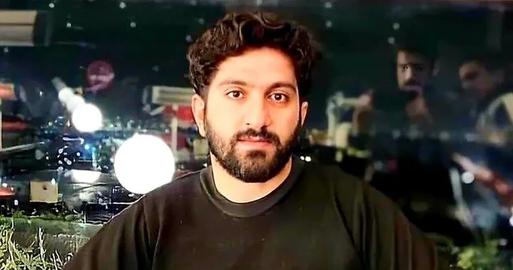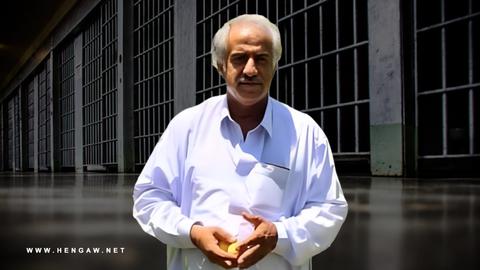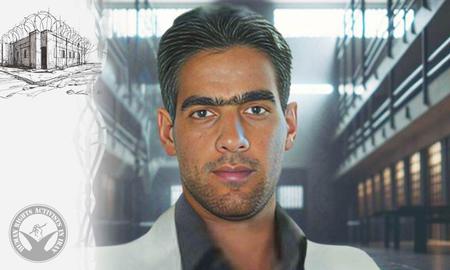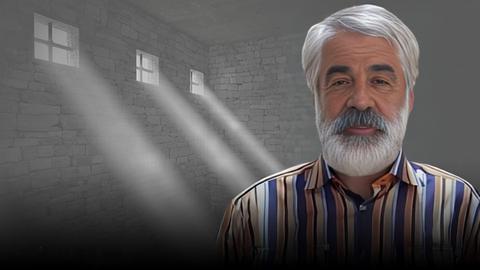For several years, the protest chant "Evin has turned into a university, Iran into a detention center," referring to the notorious prison in the capital Tehran, has served as a unifying call for student rallies across Iran.
Prisons across the country have seen a steady influx of students, professors, researchers and writers, activists and dissidents, and ethnic and religious minority prisoners of conscious of all backgrounds.
But even in prison, these individuals have remained unwavering in their commitment to seeking solutions and shedding light on pressing social, environmental and economic issues.
Imprisoned Female Researchers
In July, Niloofar Bayani – an environmental activist who has been incarcerated since 2017 by Islamic Revolutionary Guard Corps (IRGC) along with other environmental and wildlife activists – conducted a research project while behind bars. Her study focused on climate literacy in the oil industry.
The article, accessible on the Scholars at Risk website, presents the results of her individual interviews with female inmates in her vicinity, using a set of eight investigative and collaborative questions.
Throughout the data collection process, Bayani prompted her fellow prisoners to articulate their most profound concerns regarding the natural environment and climate change. The findings revealed that the main fear among inmates related to air pollution.
Bayani, who has previously contributed to prestigious environmental journals with research articles, joins a distinguished list of researchers who have pursued their academic endeavors while incarcerated.
Narges Mohammadi, a prominent human rights activist, is another female political prisoner who authored a two-volume book titled White Torture while in prison, documenting conversations with 12 women political prisoners who experienced the harrowing effects of solitary confinement.
First published in 2020 by the Baran Publishing House in Sweden, the book has become a pivotal reference work, shedding light on the use of solitary confinement by security institutions as a means of torture and a violation of the rights of political prisoners and prisoners of conscience.
Mohammadi has faced multiple arrests and recurring stints in solitary confinement. Her most recent imprisonment, stemming from her involvement in publishing a statement last month, extended her time behind bars to a total of 10 years and nine months.
Her husband, Taghi Rahmani, is yet another individual who has endured one of the lengthiest periods of solitary confinement in the history of the Islamic Republic. He spent over two years in solitary during his 14-year incarceration from the 1980s to the 2000s. Rahmani left Iran after his eventual release and now lives in France.
Saeed Madani: Researching Behind Bars
Saeed Madani is a sociologist looking at civil society and other societal issues. Among his notable works are Child Abuse in Iran, Violence Against Children in Iran, The Sociology of Prostitution, The Need to Combat Poverty and Inequality in Iran, and Addiction in Iran.
Madani, who earned his PhD in Criminology from the University of the South Pacific in the United States, has been unable to publish his works in Iran for several years.
Despite enduring four arrests, he has produced numerous research works both within and outside prison.
His most recent arrest was linked to his research on the Islamic Republic's handling of the covid epidemic, a study that other researchers later acknowledged could have potentially reduced Iran's covid death toll by 50,000 to 75,000 people.
In the winter of 2021, as Madani was preparing to leave Iran for a study course at Yale University in the United States, IRGC agents stopped him at the airport, confiscating his passport.
During questioning at the airport, he was asked about his recent research on the management of the coronavirus pandemic. Four months later, in April 2022, Madani was arrested and remains in prison.
In December 2022, Iran's judiciary sentenced him to nine years in prison on charges such as "forming and managing groups against the system," "colluding to commit crimes against the country's security," and “propaganda."
Madani nevertheless perseveres in his commitment to research and writing within the confines of his prison cell – despite the impediments of being cut off from the external academic community.
Nasrollah Lashani: Translation Behind Prison Bars
Nasrollah Lashani, an author, researcher and nationalist activist, who faced long-term imprisonment twice, was last arrested in 2020 despite also being ill. He was eventually released from prison in December 2022.
While incarcerated, Lashani authored and translated numerous significant works about non-violent resistance, transformation and democracy.
His work includes an article titled The Narrow Path of Freedom, a critique of the book by Daron Acemoglu and James A. Robinson, as well as a translation of A Dynamic Model of Non-Violent Resistance Strategy by Erica Chenoweth, Andrew Hawking and Zoe Marks, among others.
A former colleague of Lashani, who observed the activities of this 43-year-old researcher and translator while in prison, told IranWire: "The most significant challenge for Nasrollah's research and that of others studying in prison was the limitation of resources and opportunities."
"Prison time is plentiful, but it's also crowded, and the overcrowded conditions and resource shortages, including inadequate study spaces, create challenges not only for Nasrollah but also for anyone interested in research," a colleague added. "In rooms accommodating 15 to 16 people, and sometimes reaching 30, concentrating becomes quite challenging."
Addressing limitations in access to research materials, the source noted, "A researcher inside prison can only conduct research using the resources at their disposal, making it impossible to delve into any research they deem necessary."
visit the accountability section
In this section of Iran Wire, you can contact the officials and launch your campaign for various problems






























comments